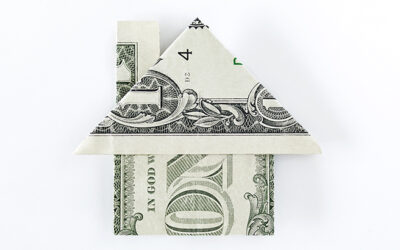
“Let’s explore just a few of the reasons why so many Americans continue to value homeownership.”
Buying a home is a powerful decision, and it remains a key part of the American Dream. In fact, the 2022 Consumer Insights Report from Mynd found the majority of people polled still view homeownership as a key life achievement. Let’s explore just a few of the reasons why so many Americans continue to value homeownership.
The Financial Benefits of Owning a Home
One possible reason homeownership is viewed so highly is because owning a home is a significant wealth-building tool, and it provides meaningful financial stability over renting by locking in your monthly housing payments for the length of your home loan. An article from Forbes explains:
“Understanding the potential benefits of homeownership helps individuals see the value of owning property instead of renting. . . . household wealth among homeowners is a whopping 1,469% higher on average compared to renters, excluding home equity, making the allure of homeownership even more enticing.”
Over time, owning a home not only helps boost your own net worth, but it also sets future generations up for success as you pass that wealth down. That may be why the Mynd report also says:
“Most Americans (78%) still associate homeownership with the ‘American dream.’ And nearly two-thirds of Americans (65%) see homeownership as a means of building intergenerational wealth.”
The Non-Financial Benefits of Homeownership
While the financial benefits of owning a home are important, becoming a homeowner impacts you on a social and emotional level, too. As Mark Fleming, Chief Economist for First American, says:
“. . . buying a home is not just a financial decision. It’s also a lifestyle decision.”
Your home provides feelings of achievement, responsibility, and more. 3by30 highlights the top 10 benefits homeowners enjoy. A few non-financial advantages include:
- Providing you with more freedom and control over your living space
- Giving you a greater sense of pride
- Helps with community engagement
What Does That Mean for You?
If your definition of the American Dream involves greater freedom and prosperity, then homeownership could play a major role in helping you achieve that dream. While it may feel challenging to buy a home today as mortgage rates and home prices rise, if the time is right for you, know that there are incredible benefits waiting for you at the end of your journey. You’ll have a place you can grow your wealth, call your own, and feel most comfortable.
Like the National Association of Realtors (NAR) says:
“. . . research has consistently shown that homeownership is also associated with multiple economic and social benefits to individual homeowners. Homeownership has always been an important way to build wealth.”
Bottom Line
Buying a home is a powerful decision and a key part of the long-term dream for many Americans. And if homeownership is part of your dreams this year, let’s connect to start the process today.
To view original article, visit Keeping Current Matters.
Why It Makes Sense to Move Before Spring
If you’re ready to buy a home, right now is the best time to do so before your competition grows and more buyers enter the market.
The 3 Factors That Affect Home Affordability
When you think about affordability, the full picture includes more than just mortgage rates and prices. Wages need to be factored in too.
Want To Sell Your House? Price It Right.
In today’s more moderate market, how you price your house will make a big difference to not only your bottom line, but to how quickly your house could sell.
Pre-Approval in 2023: What You Need To Know
To understand why it’s such an important step, you need to understand what pre-approval is and what it does for you.
Think Twice Before Waiting for 3% Mortgage Rates
It’s important to have a realistic vision for what you can expect this year; advice of expert real estate advisors is critical.
Today’s Housing Market Is Nothing Like 15 Years Ago
In the 2nd half of 2022, there was a dramatic shift in real estate causing many people to make comparisons to the 2008 housing crisis.





